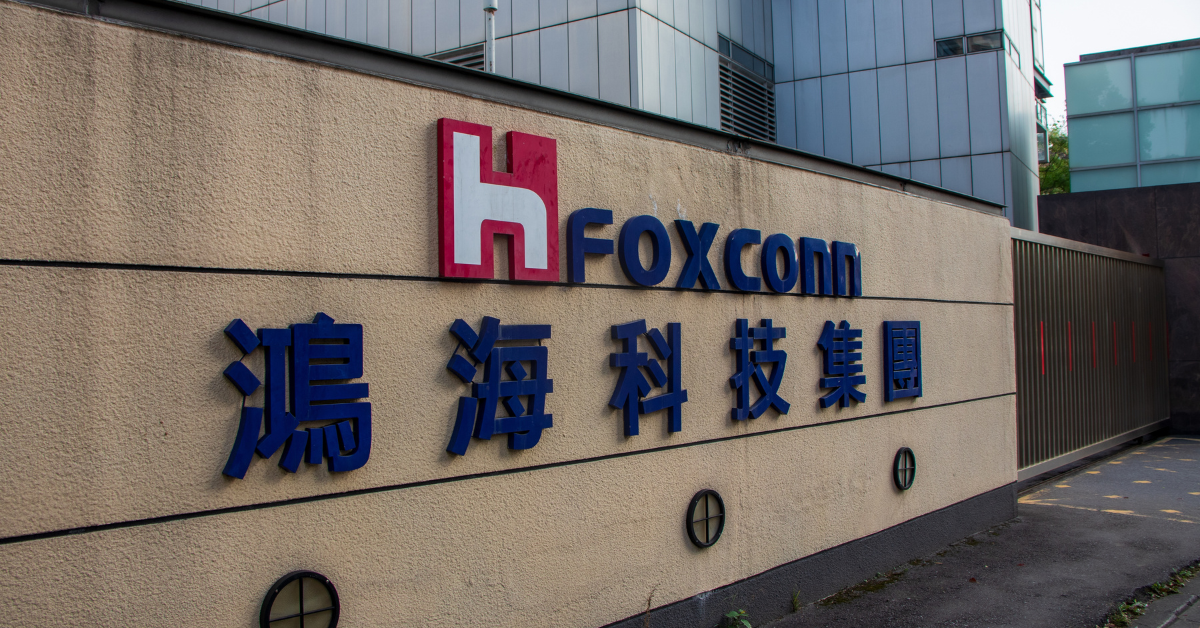SUMMARY
The initial investment for the project is set at INR 1,200 Cr
Foxconn, through its subsidiary Foxconn Hon Hai Technology India Mega Development, is seeking proposals from interested parties to construct the plant on its owned land
Foxconn Hon Hai Technology India Mega Development will invest $37.2 Mn for a 40% stake in the JV
Taiwanese electronics major Foxconn has called for bids for building a chip assembly and testing facility in India, in collaboration with the HCL Group.
The initial investment for the project is pegged at INR 1,200 Cr. Foxconn, through its subsidiary Foxconn Hon Hai Technology India Mega Development Pvt Ltd, is seeking proposals from interested parties to construct the plant on its owned land, as reported by PTI.
Earlier it was reported that Foxconn and India’s HCL Group would collaborate to set up a joint venture (JV) for building a semiconductor assembly and testing facility in the country.
As per a filing on the Taiwanese stock exchange, Foxconn Hon Hai Technology India Mega Development, a unit of the Taiwanese contract manufacturer, will invest $37.2 Mn for a 40% stake in the JV.
Foxconn, a key manufacturer of Apple’s flagship smartphone, the iPhone, in India, has set an ambitious target to double its India employment, investment and business size in one year.
The development comes at a time when India has been rolling out a red carpet for global semiconductor companies to fuel manufacturing in the country and cut dependence on neighbouring China.
As a result, a slew of companies have made a beeline for the country. In June, following Prime Minister Narendra Modi’s visit to the US, Micron announced a $2.75 Bn commitment to set up a DRAM (dynamic random access memory) and NAND assembly, testing, marketing and packaging (ATMP) facility in India.
Applied Materials also plans to invest $400 Mn over the next four years to set up a semiconductor centre for commercialisation and innovation in India.
The Indian semiconductor industry is projected to achieve a market value of $55 Bn by 2026, driven primarily by the demand for semiconductors in smartphones and wearables, automotive parts, and computers and data storage, which together make up over 60% of the market.
Disclaimer
We strive to uphold the highest ethical standards in all of our reporting and coverage. We StartupNews.fyi want to be transparent with our readers about any potential conflicts of interest that may arise in our work. It’s possible that some of the investors we feature may have connections to other businesses, including competitors or companies we write about. However, we want to assure our readers that this will not have any impact on the integrity or impartiality of our reporting. We are committed to delivering accurate, unbiased news and information to our audience, and we will continue to uphold our ethics and principles in all of our work. Thank you for your trust and support.



![[CITYPNG.COM]White Google Play PlayStore Logo – 1500×1500](https://startupnews.fyi/wp-content/uploads/2025/08/CITYPNG.COMWhite-Google-Play-PlayStore-Logo-1500x1500-1-630x630.png)